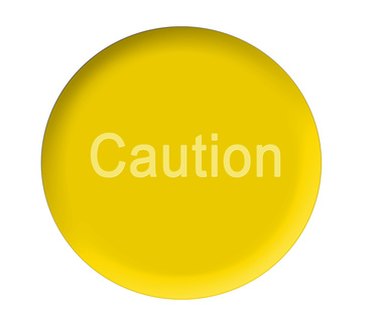
Also known as washing soda and soda ash, sodium carbonate has a wide range of uses. It can raise the pH of a swimming pool if the water is too acidic, it has roles in glass and paper manufacturing, and it is a component of some bleaches and automatic dishwashing detergents. Because sodium carbonate is corrosive, working with it poses certain dangers.
Inhalation Dangers
Video of the Day
Sodium carbonate dust is harmful if inhaled, according to the Iowa State University. It irritates the respiratory tract and can cause burning pain in the nose and throat, coughing, wheezing and shortness of breath. Inhaling sodium carbonate dust can even cause pulmonary edema, or fluid accumulation in the lungs. Repeated inhalation of sodium carbonate or prolonged exposure can lead to tooth erosion, nasal congestion, nosebleeds, damage to the nasal septum, bronchitis and chest pain.
Video of the Day
Skin Irritation
Sodium carbonate contact with skin can cause irritation, blisters and burns, particularly if the skin is wet, as noted by ISU. To prevent skin damage, flush skin with soap and water for at least 15 minutes. When working with sodium carbonate, wear protective gloves and clothing to prevent skin contact with the substance.
Eye Damage
Sodium carbonate can cause serious eye damage. Contact with the eyes can result in conjunctival edema, or swelling, and it can also destroy the cornea, according to the J.T. Baker company website. Wear protective eyeglasses or chemical safety goggles when working with sodium carbonate. If sodium carbonate does get into the eyes, immediately flush them with plenty of water for at least 15 minutes. The affected individual must not keep eyes tightly closed, because that increases the risk of serious damage.
Internal Effects
If swallowed, sodium carbonate is not especially toxic, but its corrosive effects can be dangerous to the gastrointestinal system, as noted by the U.S. National Institutes of Health at its MedlinePlus website. Effects can include hoarseness, throat swelling, difficulty swallowing, drooling, vomiting, diarrhea, and severe pain in the mouth, throat, chest and abdomen. Ingestion of sodium carbonate can lead to a shock reaction involving a rapid and life-threatening drop in blood pressure. Swallowing sodium carbonate can have long-term effects and can even be fatal if consumed in a large enough amount, although MedlinePlus notes this is rare. Professional medical treatment includes providing fluids and oxygen.